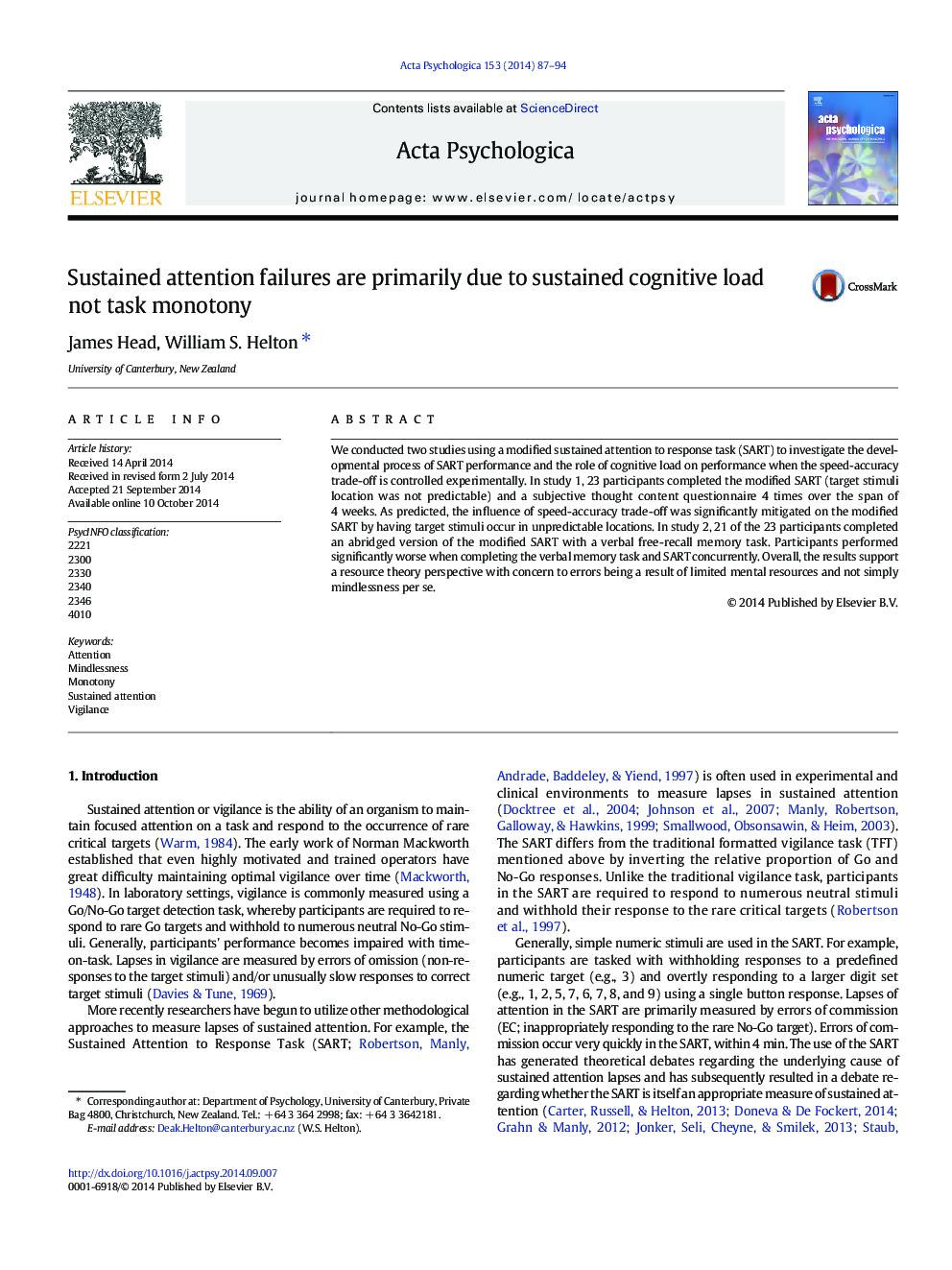| Article ID | Journal | Published Year | Pages | File Type |
|---|---|---|---|---|
| 919767 | Acta Psychologica | 2014 | 8 Pages |
•We tested whether resource limitations or monotony results in lapses.•We explored a modified sustained attention to response task (SART).•Lapses on the SART are more prevalent when cognitive load is added to the SART.•Collectively, results provide support for resource theories of sustained attention.
We conducted two studies using a modified sustained attention to response task (SART) to investigate the developmental process of SART performance and the role of cognitive load on performance when the speed-accuracy trade-off is controlled experimentally. In study 1, 23 participants completed the modified SART (target stimuli location was not predictable) and a subjective thought content questionnaire 4 times over the span of 4 weeks. As predicted, the influence of speed-accuracy trade-off was significantly mitigated on the modified SART by having target stimuli occur in unpredictable locations. In study 2, 21 of the 23 participants completed an abridged version of the modified SART with a verbal free-recall memory task. Participants performed significantly worse when completing the verbal memory task and SART concurrently. Overall, the results support a resource theory perspective with concern to errors being a result of limited mental resources and not simply mindlessness per se.
